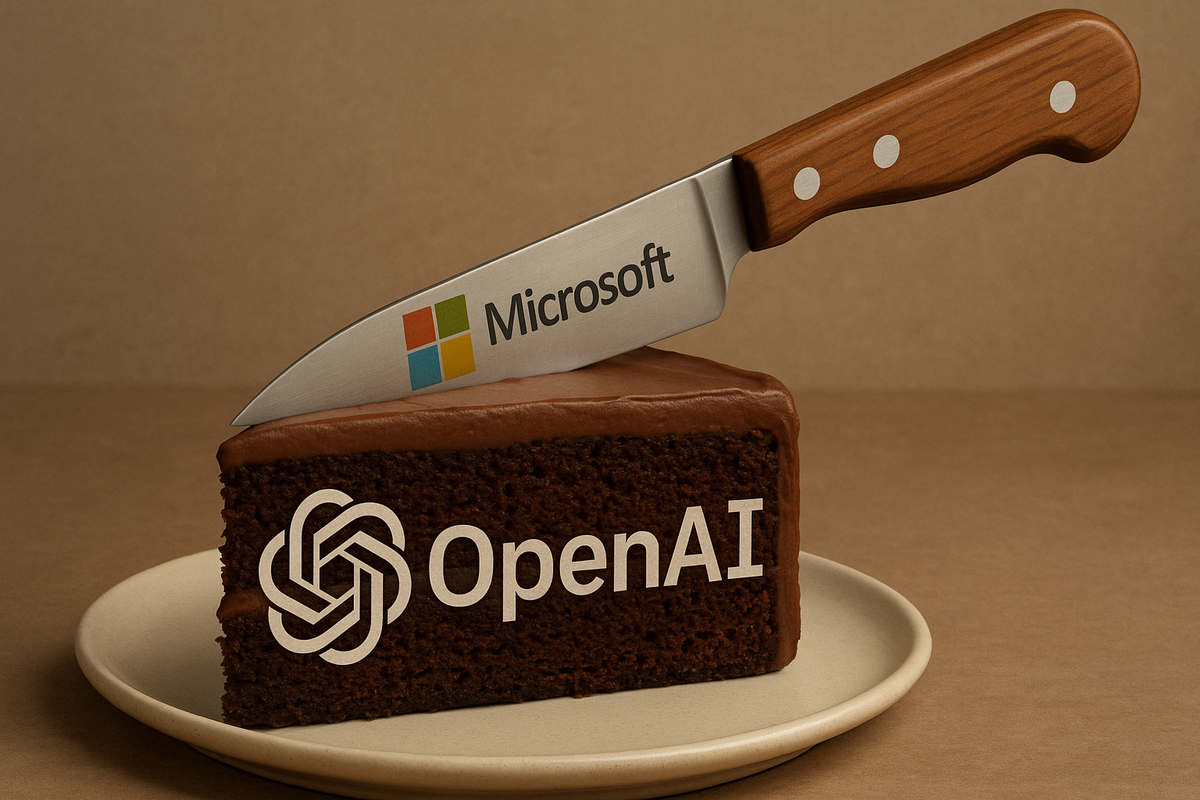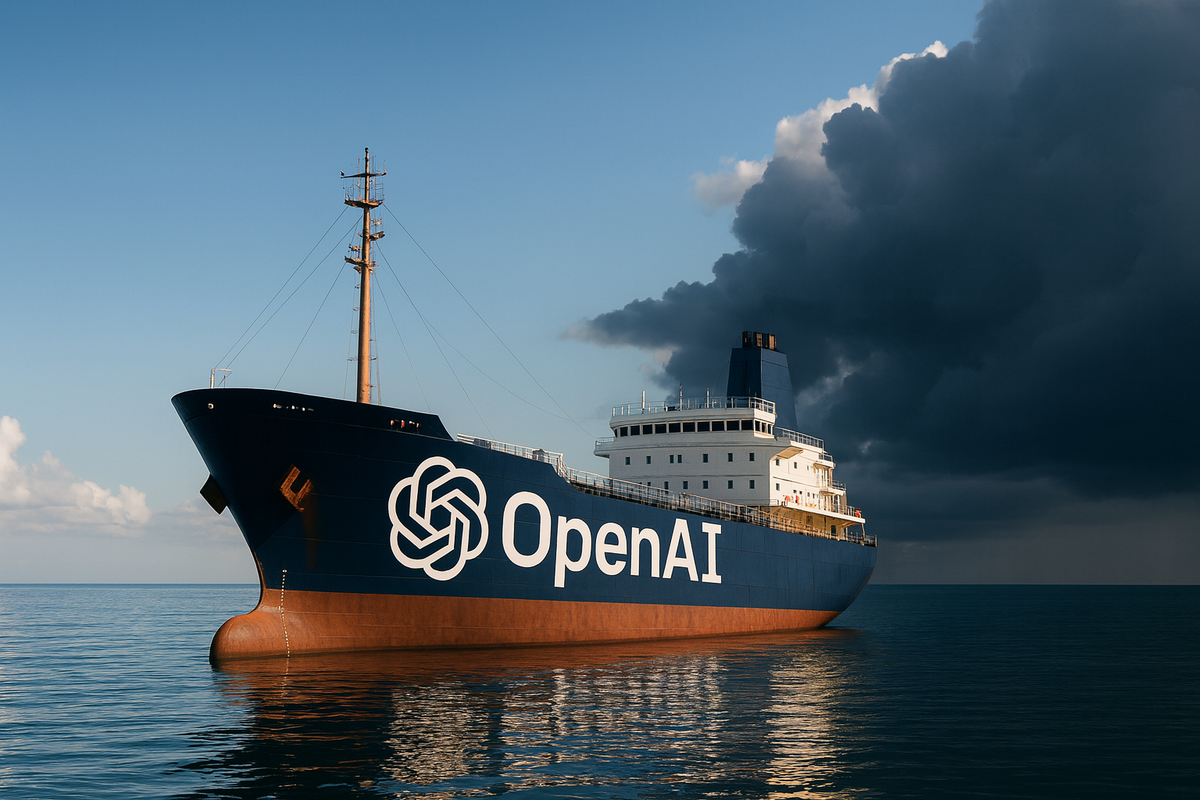IPOpenAI
OpenAI CFO Sarah Friar may not want to talk about an IPO yet, but luckily, Alex Kantrowitz and I certainly do. As we spend the first twenty-plus minutes on the topic during his Big Technology Podcast this week.
Friar's comments about the IPO were quickly overshadowed because she also happened to bring up the notion of a government "backstop" during a sit down at The Wall Street Journal’s Tech Live conference. While she quickly moved to clarify her comments, many took it to mean that she was calling for the government to guarantee the startup couldn't fail – the proverbial "too big to fail" situation, that myself and others have been talking about as the AI sector costs mount and the race with China to control the technology heats up. As I wrote a few weeks back:
It's all hypothetical, of course, but it's also a bit terrifying as to how quickly and easily it could become reality. It doesn't require the collapse of OpenAI, just something that merely showcases a slowdown in likely outcomes or timetables. Something that puts a chill on spending while sending a chill down the spine of the market. Something that plants a seed of real doubt: maybe this isn't going to play out as promised.
This will lead to a private contagion that could lead to a public one.
And again, that's all because OpenAI has set itself up for a completely binary outcome here. With these massive deals, they have bolstered themselves to the point of being "too big to fail". And with that phrase in mind, it's certainly possible that the powers that be in the White House – and certainly the current administration given their proclivity to strike deals with, say, Intel – decide to bail them out or backstop them in some way to stop the above from happening. Then again, I'm not sure we can trust anyone at the Treasury to be savvy enough to see all of this until it's too late...
"Backstop" you say... Well, if nothing else, Treasury may be awake to this potential notion now!
Sam Altman also felt the need to clarify this situation not only because of Friar's comments, but because he himself brought up the topic a couple weeks ago while talking to Tyler Cowen. Both statements, the company is saying, are about the government stepping up to help with infrastructure build out for the benefit of all companies, not just OpenAI. And that, of course, would be nothing new. Basically everyone in tech has been calling on the government to help with the infrastructure needed to fuel this wave – notably in power generation.
At the same time, there's one company that would arguably benefit more than the others in such a government-backed build out...
If you read Friar's and Altman's comments in full, it's pretty clear what they're actually calling for: the government to help guarantee the loans OpenAI needs in order to do the build out. As I wrote about a few weeks back, this notion is the key to OpenAI's $100B NVIDIA deal – they need a partner to help secure the debt they need to raise. NVIDIA can (and seemingly will) do part of it, but they're going to need more. You know who could help them secure all they needed? The Treasury.
Anyway, we don't have to argue semantics. To alleviate the big fear the public would have here, David Sacks has now said, on the record, that the Trump administration won't be bailing out OpenAI in the case that they go bust. Of course, I'm also not sure they would say they're bailing out Intel, even though their 10% purchase sort of looks like that in a certain light, but I digress...
Back to the would-be IPO:
“IPO is not on the cards right now,” Friar said. “We are continuing to get the company into a state of constantly stepping up into the scale we are at, so I don’t want to get wrapped around an IPO axle.”
Again, semantics. "Right now" is clearly the key there. Obviously Friar doesn't want to formally kick off the process before they need to, but there are also now multiple reports that they're at least talking about that process internally with the shift to a PBC now done. It's natural.
I'm sorry, maybe I shouldn't use such words with OpenAI. Nothing is "natural" with this company, but naturally they have to IPO eventually to be able to get full access to the capital they require to reach their goals – something Altman himself has acknowledged recently. It may not happen next year, but 2027 seems like a pretty decent bet right now – though that's also largely macro dependent, which is the main point I made on the podcast.
It's impossible to know what the market will look like in 2027, but there's a decent chance it will look worse than it does right now, simply because we've been on a bull run. And all runs end. This is a very real risk for all companies looking to go public, but especially OpenAI given their capital needs – and how intertwined they are with the other major players: NVIDIA, Apple, Microsoft, Google, Amazon... just to state the five largest companies in the world right now, all of which are now partnering with OpenAI in major ways.
One more thing: if the current reports are even just directionally accurate that OpenAI may look to IPO around a $1T valuation (and what else would they shoot for, a down round? If anything, that valuation may be too low in 2027...), the narrative around the moment will be fascinating because they're essentially asking investors to sign up for the belief that OpenAI will grow into the biggest company of all time, or close to it, in relative short order! If you're buying in at $1T to a still wildly unprofitable, hopefully still high-growth company...
And that's of course the narrative you would expect OpenAI to be pitching in a would-be road show! What's the future of everything worth? $5T? Seems low. $10T? More? But this will not be like the IPOs of the rest of Big Tech – a group which OpenAI would immediately be a part of with such an IPO. Those companies all had huge headroom when it came to growth from time of IPO.
At such a starting market cap, OpenAI would already be just outside the top 10 largest companies in the world, and perhaps a part of that group depending on market conditions and the others on the list, at the time of listing.
This is like Saudi Aramco. Are they going to be too big to IPO?










